Chery sold 2 101 new vehicles in June.
Chinese car sales continue to rise in South Africa, with more brands looking to enter the market.
Chery and GWM were the top selling Chinese manufacturers in June, with the former selling 2 101 new vehicles and the latter selling 2 288, according to data from the National Association of Automobile Manufacturers of South Africa. The two brands ranked sixth and seventh overall in new vehicle sales for the month, only falling behind legacy brands Toyota, Suzuki, Volkswagen Ford and Hyundai.
Chery relaunched in South Africa in 2021 and GWM brought its SUV brand, Haval, in the same year. The success of these two paved the way for the likes of Omoda, Jaecoo and Jetour to also enter the country.
Omoda and Jaecoo passed the 1 000 vehicle mark in June while Jetour sold 683 new vehicles and Baic sold 232.
Many industry watchers believe the price point is the main reason Chinese vehicles are doing so well in South Africa. But Shannon Gahagan, the national brand and marketing manager at Omoda and Jaecoo South Africa, has attributed the success of these brands rather to what is being offered for the price.
“Price is a contributing factor; however, other brands offer vehicles in this price segment that haven’t seen the same kind of growth,” Gahagan said.
“Chinese vehicles lie not only in pricing but also in what is offered for that price, such as technology, vehicle styling, and the brand.”
Gahagan believes the rise of Chinese vehicles in South Africa has reshaped consumer perception in the country.
“Chinese OEMs [original equipment manufacturers] have shown that tech and innovation don’t have to come with a steep price tag. South Africans are embracing the variety of choice and are open to receiving more ‘bang for their buck,’ which also comes with style and innovation,” she said.
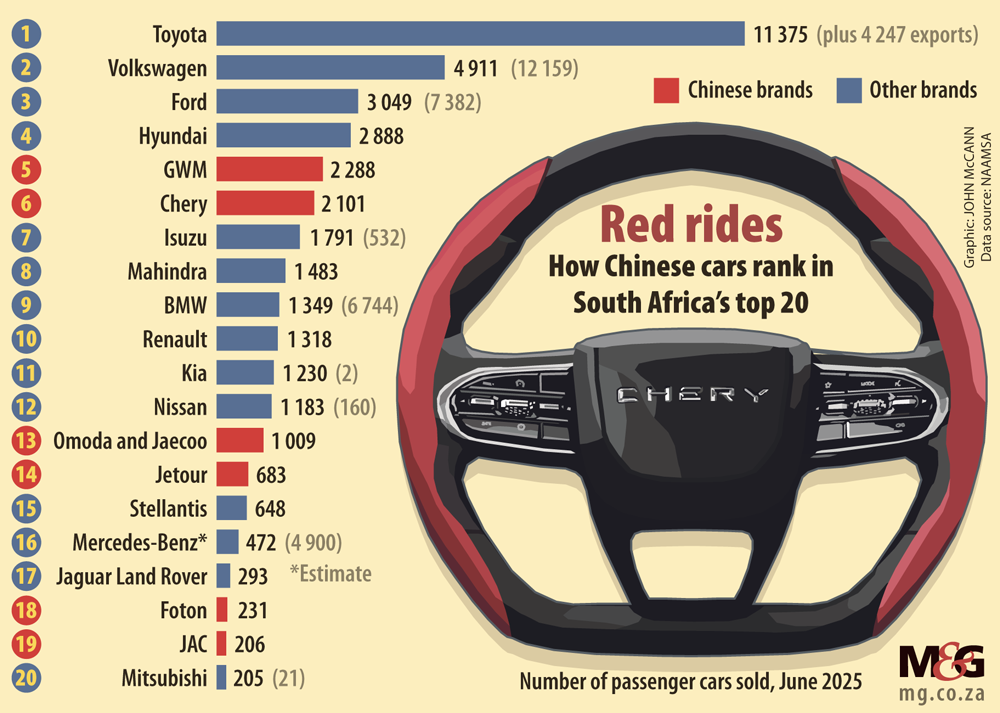 (Graphic: John McCann/M&G)
(Graphic: John McCann/M&G)
Entering the new-energy market
By the end of 2024, South Africa’s new-energy vehicle (NEV) market was growing at a fast pace, but still not enough to have a meaningful effect on new car sales. Although the segment experienced a 100.6% year-on-year increase in 2024, it made up only 3% of the total new-vehicle market.
Range anxiety — the shortage of charging infrastructure — and the price point of fully electric vehicles (EVs) have contributed to the slow growth of NEVs in South Africa. The alternative is plug-in hybrid electric vehicles (PHEV), which eliminates range anxiety because the vehicle works with both an electric motor and an engine.
By the end of 2024, there were no plug-in hybrid vehicles selling for under a million rand but, since April, Chinese manufacturers have released a variety of PHEV into the South African market.
BYD released the Sealion 6 in April and other brands followed suit. Omoda and Jaecoo released PHEV variants of the C9 and J7 in June, Chery released the PHEV variant of the Tiggo 7 Pro and Haval released the H6 GT in a PHEV as well. All of these models come in at under a million rand.
Gahagan says it is important to allow people with different budgets to enjoy the advancements in the motoring industry.
“As the technology advances and becomes more widely accepted internationally, the pricing is adapting to suit a wider variety of customers. We’re also striving to make these technologies more accessible and suitable for various budgets, allowing more customers to experience these advancements,” she told the Mail & Guardian.
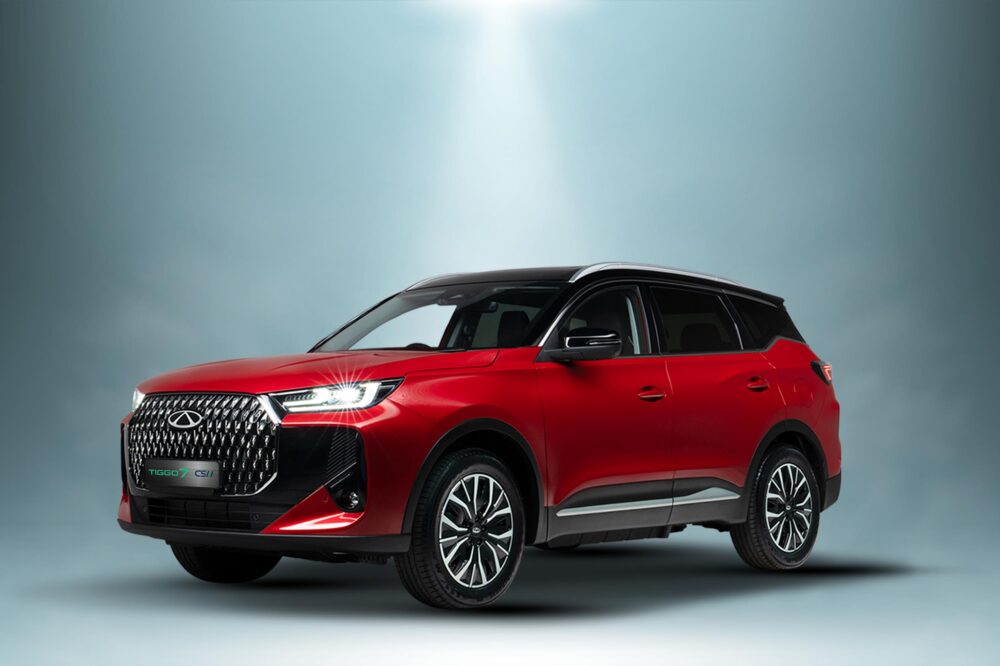 Chery recently released the Tiggo 7 CSH, a PHEV variant of the famous Tiggo 7 Pro.
Chery recently released the Tiggo 7 CSH, a PHEV variant of the famous Tiggo 7 Pro.
Trust in Chinese vehicles
When Chinese brands entered the market in 2021, a major concern was their reliability. But strong warranties and service plans have shown they veconfidence in their products.
Chery released a game changing 10-year or one million kilometre warranty on their engines for the first owner of the vehicle, while offering the usual four year/60 000km service plan and five-year/150 000km vehicle warranty.
Omoda and Jaecoo have followed suit with the engine warranty on their vehicles.
These manufacturers have now also placed the same amount of confidence in their PHEV vehicles by offering a 10-year/unlimited kilometre power battery pack warranty for the first owner of the vehicle. These strong warranties have helped contribute towards the success of Chinese vehicles in South Africa.
In terms of parts, Omoda and Jaecoo have a 98.4% fill at their warehouse.
“We’ve focused on getting the fundamentals right. Reliable products, strong after-sales support, and local parts availability through our warehouse, “ Gahagan said.
“Our growing sales show that more South Africans are placing their trust in the brand, and as more of our vehicles enter the used market, resale values will start to reflect that confidence.”
More models and brands to come to South Africa
Chinese manufacturers have been busy in the South African market in 2025.
BYD released three new vehicles in April, GWM have expanded their Tank range and P-Series range and also released the new H6 and H6 GT PHEV, Chery just recently updated its Tiggo 7 Pro range with a PHEV variant and its Tiggo Cross range with a hybrid variant and Omoda and Jaecoo also just expanded their range of vehicles.
Omoda and Jaecoo are set to release the C7 and J5 later this year, while Chery is to bring its flagship Tiggo 9 PHEV. Chery will also bring a bakkie named Himla to South Africa in 2026.
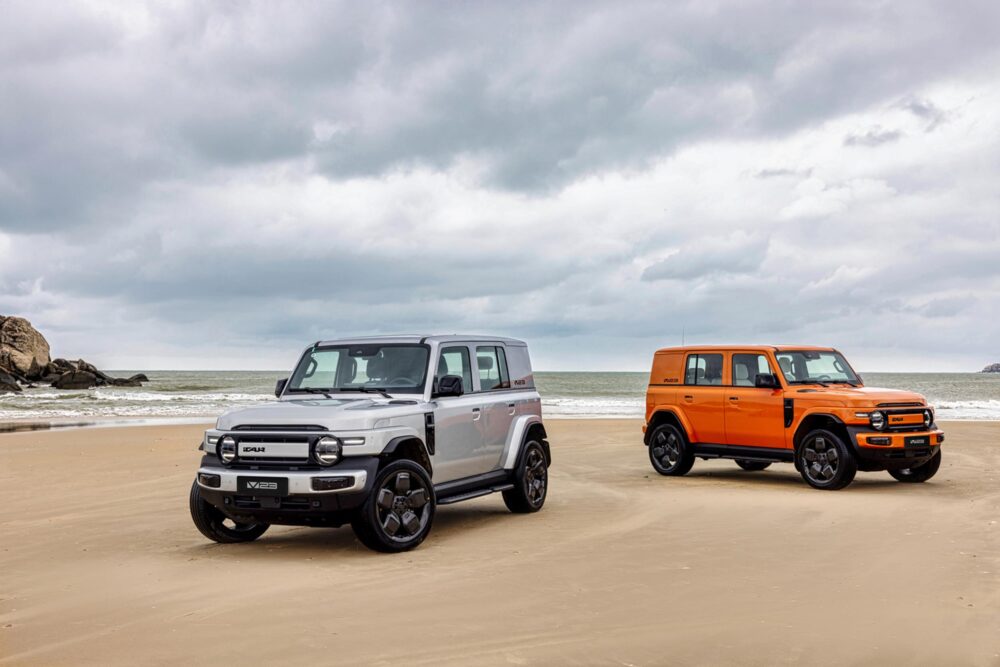 The iCAUR is coming to SA in 2026
The iCAUR is coming to SA in 2026
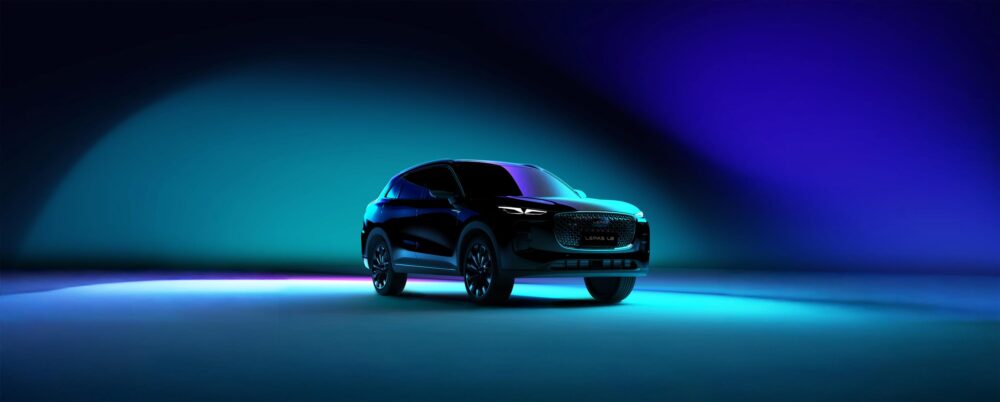 Lepas is launching in 2026
Lepas is launching in 2026
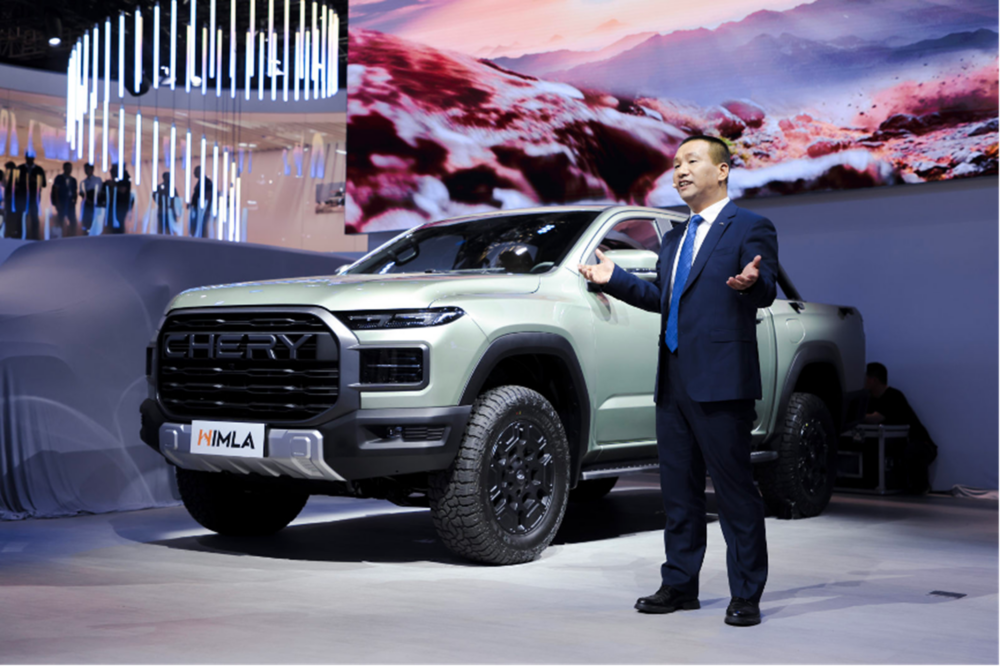 A Chery Himla bakkie was revealed in 2025
A Chery Himla bakkie was revealed in 2025
There are currently 14 Chinese brands in South Africa, but it seems to just be the beginning.
Changan, Deepal, Lepas and iCAURr (not an Apple Car) are all also confirmed to release in South Africa in late 2025 and 2026 respectively.
Gahagan confirmed that iCAUR will be a NEV brand that will offer a more accessible entry point into the premium electric space.